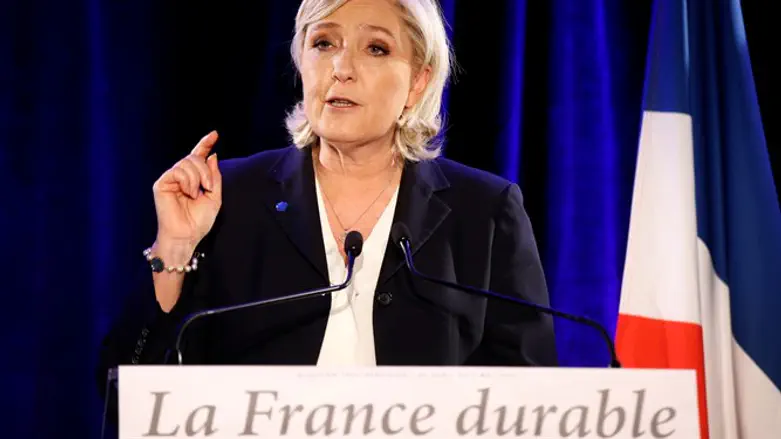
While polls show her the underdog in France’s upcoming presidential election, National Front chairwoman Marine Le Pen is hoping a silent majority of working class voters, traditional Catholics, French nationalists, and traditionally centrist voters concerned over the spread of Islamic radicalism will defy expectations and catapult her to victory on May 7th.
Whether or not she ultimately prevails, the 48-year old National Front leader is expected to win more votes than any previous NF electoral bid, and could potentially take first place in the first round of voting, set for April 23rd. The latest polls show Le Pen either tied with or leading the Emmanuel Macron, her most likely opponent for the second round of voting in May.
Le Pen, who would win roughly 40% of the vote in a second round matchup with Macron, is already poised to double party’s best showings – including the 2002 upset when her father, Jean-Marie Le Pen won second place in the first round of voting, and gained 18% of the vote in the second round.
Under Marine the National Front has abandoned some of Jean-Marie’s more controversial positions, and Marine has condemned her father’s often inflammatory statements in an effort to gain mainstream appeal for the party. In 2015, Marine backed the expulsion of her father from the party for a series of anti-Semitic comments, including dismissing the Holocaust as a mere “detail of history”.
A week and a half ahead of the first round of voting in France, Marine Le Pen sat down with the Israeli paper Makor Rishon to discuss how her vision for France would impact French Jews and the relationship between Paris and Jerusalem.
While proposals banning religious clothing in public – including kippot – and a plan to bar dual citizenship – which could affect thousands of French Jews in Israel – have raised questions in the Jewish community about her intentions, Le Pen insists her goal is to merely to combat radical Islam, adding that she would defend the French Jewish community from the rising tide of anti-Semitism.
“I was always very clear on this subject,” said Le Pen. “Everyone knows I had a split with my father over this; even though it hurt me greatly, because it is my father. You can always condemn politicians who have someone around them who is suspected (of bigotry). There are anti-Semites around, including around Francois Fillon, Emmanuel Macron, Mitterrand, and even de Gaulle. It’s hard for me to understand. But what I do know is that lots of French Jews are voting for us, because they know very well that not only am I not anti-Semitic, but I’m the most reliable weapon to defend them.”
Turning to the subject of Israel and international efforts to encourage boycotts of Israeli businesses and cultural institutions, Le Pen condemned the European Union’s recent measure of support for the BDS movement.
“I’m against [BDS]. I think that the EU parliament made a mistake by supporting the BDS movement – but they [the BDS movement] has a very strong lobby. Anyway, in France BDS is banned.”
